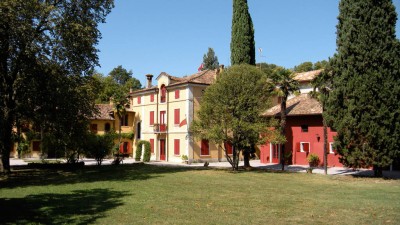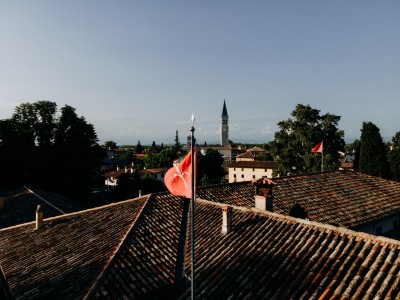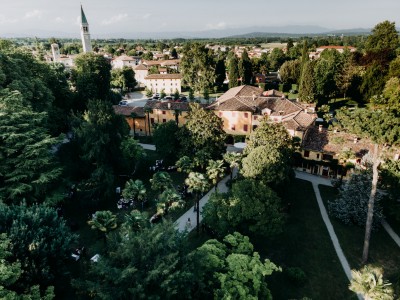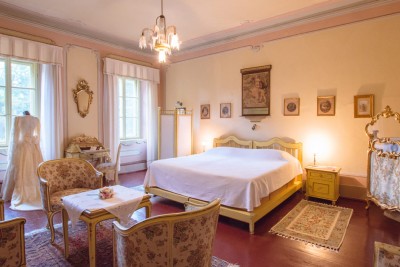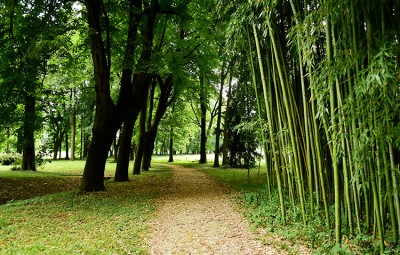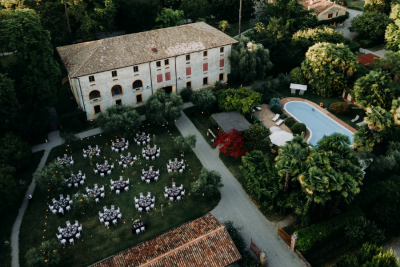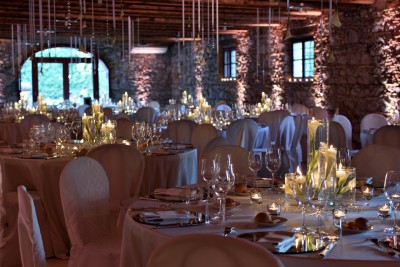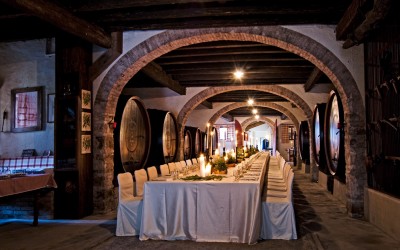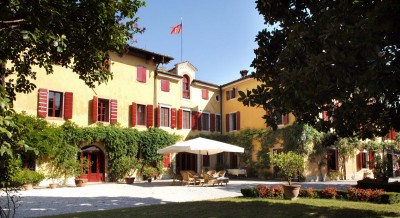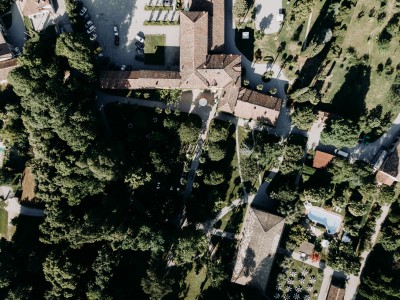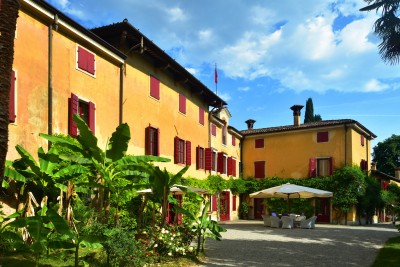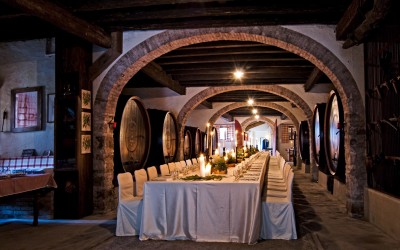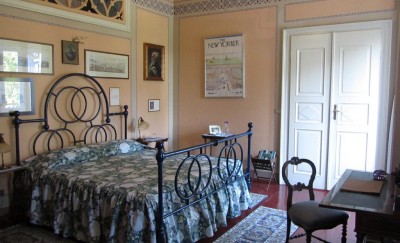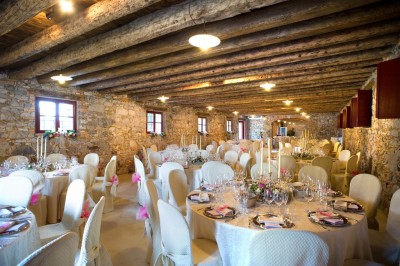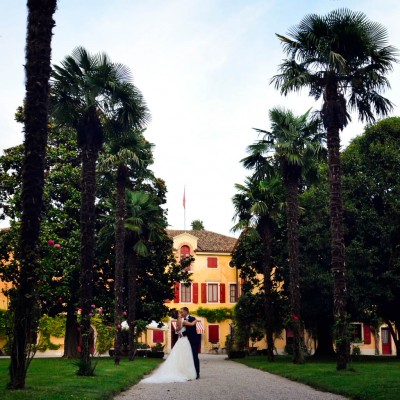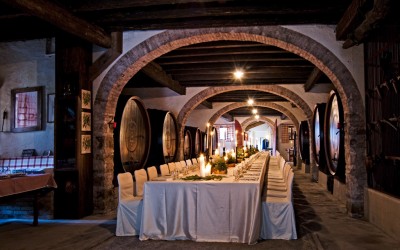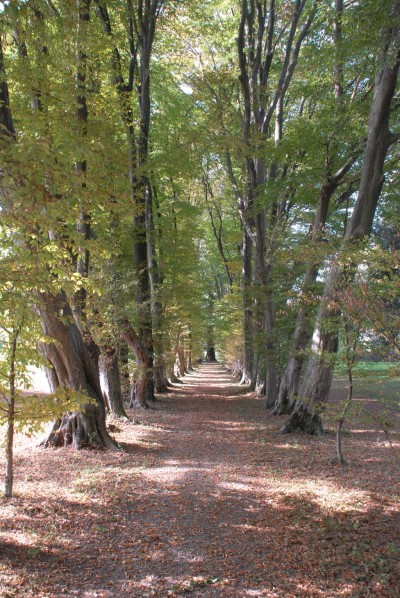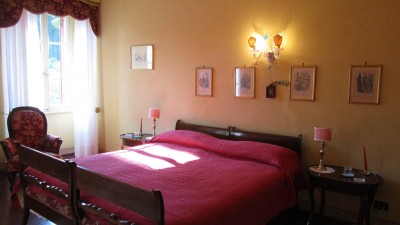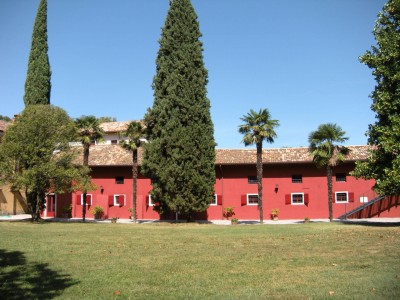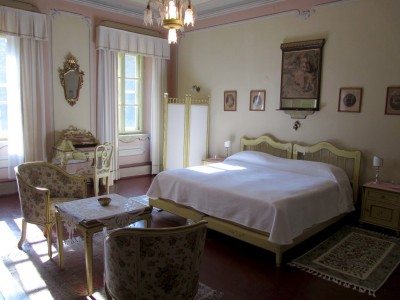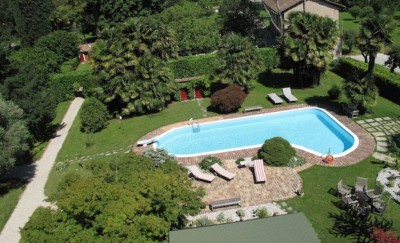Contact the abode
VILLA IACHIA IN RUDA
Villa Iachia is the ideal destination for those seeking a new way to spend time on holiday in Friuli Venezia Giulia, combining the pleasure of tranquillity in a historical residence in the Friulian countryside with the desire to explore and discover new places, people and cultures.
The Villa is centrally located in relation to the most beautiful spots in the Friuli Venezia Giulia region, whether you be looking for areas of natural and scenic interest, wanting to enjoy its historical and artistic aspects, or looking forward to tasting the local food and wine or practising sport.
Located just a few minutes by car from Trieste-Ronchi dei Legionari Airport, there are so many things to see and do that are within easy reach of Villa Iachia: for example, the beaches of Grado, the archaeological park of Aquileia, the history of Palmanova and Cividale del Friuli, the hills and wineries of Collio, the Great War trails on the Karst Plateau, the natural and faunal reserves of the mouth of the Isonzo estuary and Marano Lagunare, and the Julian Alps. Trieste, Venice and nearby Slovenia, with its famous casinos, are also easily accessible.
However, the pleasure of returning to the Villa cannot be underestimated: visitors will be able to immerse themselves in an oasis of peace and tranquillity amidst the silence of a captivating atmosphere that is redolent of times gone by.
The Villa has remained exactly as it was in the past, with its original interiors, furnishings, light and scents of yesteryears. In such a setting, there is nothing more pleasurable than taking a dip in the pool and then relaxing in the Casaccia or strolling through the large centuries-old park.
This is an exclusive location for enjoying a family holiday, celebrating your wedding or organising a private event in a historic villa.
THE HISTORY OF VILLA IACHIA
Villa Iachia is a historical residence founded in the 18th century. Between 1870 and 1880, Giacomo Davide Iachia established a model agricultural enterprise that became one of the most important in the area.
The farm extended from the lands of Ruda to those of Aquileia, Campolongo al Torre and Fiumicello, from which it produced wine, fruit and vegetables, sugar beets and, later, tobacco, destined for Trieste and the Istrian market.
Most of the farm's land was destroyed during the Great War, when the Villa was transformed into a field hospital. However, Giacomo Iachia's great determination in restoring the business earned him the gold medal awarded in 1922 by the Provincial Committee for the revival of the Gorizia region in the competition for the reconstruction of damaged areas.
The Iachia family, who have owned the Villa for more than two hundred years, arrived in Trieste towards the end of the 18th century and were part of the city's affluent and productive upper bourgeoisie.
Giacomo Iachia (1884-1960) married Jole Vivante (1895-1970), the youngest daughter of Giuseppe Vivante and Natalia Schmitz, sister of the famous writer Italo Svevo. The couple settled in Palazzo Vivante (formerly Palazzo Corti), where in 1918 Emanuele Filiberto Duke of Aosta had placed the command of the Third Army, using Villa Iachia as his country residence.
In 1940, the farm was divided into fifteen sharecropping colonies and extended over about 200 hectares. The average production of the farm was 700 quintals of wine, 1,200 of wheat, 2,000 of corn, 40,000 Kentucky tobacco plants, 2,000 of beets and 200 of peaches, which earned numerous awards for quality. The remaining fields were turned into artificial meadows in rotation, and silkworms were also bred.
During the Second World War, the Iachia family, like many others of Jewish origin, had to flee from Trieste. Palazzo Vivante was first garrisoned by fascists, then by Nazi troops and was later heavily damaged by bombardments.
Two of Jole's brothers died in the San Sabba rice mill, which has been designated as a detention camp, in 1943. Some of her children and grandchildren joined the partisans, while others fled to Switzerland. The Iachia farm was similarly requisitioned by German troops and was subject to theft and confiscation.
After the war, the family decided to leave Trieste definitively and moved to Bologna. The agricultural enterprise underwent a major downsizing. During the 1960s, the last crops were suspended, and the sharecropping of the fields was discontinued. The remaining farmers were given their homes as severance pay. Upon the death of his parents, Gino Giuseppe Iachia had some of the farm's cottages restored and for a time devoted himself to the cultivation and sale of Christmas trees.
FACILITIES AND SERVICES: WEDDINGS AND PRIVATE EVENTS IN THE FRIULI REGION
For enquiries, please contact: Andrea Iachia
PLACES OF INTEREST IN THE VICINITY
Diocesan Museum and Tiepolo Galleries.
